For procurement managers and engineers, choosing a long-term reliable lithium battery supplier is crucial. To ensure battery quality and supply stability, factors such as battery price, quality control, delivery time, and after-sales service need to be considered. This article will delve into the main battery types and application areas of the top 10 lithium battery factories, allowing you to choose the most suitable lithium battery supplier for your needs.
CATL

CATL (CATL) is a leading global manufacturer of lithium-ion batteries, specializing in the research and production of electric vehicle batteries, energy storage systems, and battery management systems (BMS). As the world’s largest supplier of electric vehicle batteries, CATL’s annual production reached 296.8 GWh in 2022, of which 96.7 GWh came from the production of lithium batteries, a year-on-year increase of 167.5%.
Core products
CATL’s main products include power batteries, energy storage batteries, and power tool batteries. Its latest generation NCMA (nickel cobalt manganese oxide lithium) battery has a nickel content of up to 90%, significantly improving energy density and endurance; The cobalt content is reduced to 5%, thereby reducing material costs and dependence on resources, and is widely used in electric vehicles, electric buses, and electric trucks.
Main application
CATL’s batteries are widely used in the global new energy vehicle industry. Our main customers include well-known car brands such as Tesla, Chery, Jianghuai, BYD, Ford, Volvo, BMW, etc. In addition, CATL also collaborates with multiple global new energy companies to jointly promote the development of clean energy and new energy vehicles.
Technology development path
- High Energy Density: CATL’s NCMA battery has an energy density of 260Wh/kg, which can store more energy compared to traditional NCA and NCM batteries, providing longer range and stronger performance for electric vehicles.
- Long lifespan: CATL batteries have undergone 1800 cycles of charge and discharge testing, with a capacity retention rate of over 95%, ensuring stable performance during long-term use.
- High safety:CATL’s batteries have passed multiple safety tests including overcharging, overdischarging, and short circuiting, and have shown excellent test results in these tests, significantly reducing the risk of battery abnormalities.
- High productivity:CATL’s NCMA battery production line has extremely high efficiency, capable of producing 20 battery modules per minute, each module containing 12 battery cells with a single capacity of 50Ah. Producing 2400 battery cells per hour, with an annual output of over 10 GWh.
LG Energy Solution
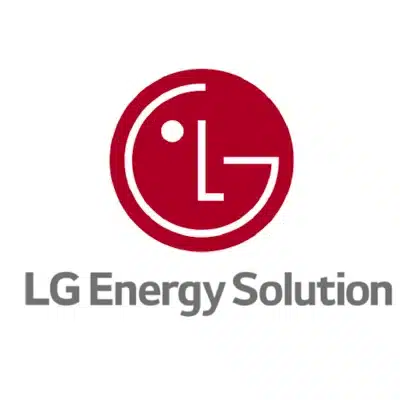
LG Energy Solution is a leading global battery manufacturer headquartered in Seoul, South Korea, and is affiliated with LG Chem. As one of the four major battery companies in the world, LG Energy Solution, with its strong chemical material background, has gradually become a battery supplier for many well-known car manufacturers around the world, including Tesla, Ford, Audi, Renault, Volvo, etc., since launching South Korea’s first lithium-ion battery in 1999.
Core products
Automotive Batteries
LG Energy Solution’s automotive batteries are one of its core products. It is widely used in the fields of electric vehicles (EV) and hybrid electric vehicles (HEV), covering various models from small sedans to large commercial vehicles. LG Chem’s automotive batteries use advanced materials and technologies, with advantages such as high energy density, high power density, long lifespan, and fast charging, ensuring that they meet the needs of different electric vehicles.
Energy Storage Batteries
Another important product line is energy storage batteries, which are used in energy storage systems, solar and wind power generation. LG Energy Solution’s batteries can meet various energy storage needs, such as household, commercial, and industrial grade energy storage systems, providing customized solutions for different users.
Main Applications
The importance of LG Energy Solution in the field of electric vehicles is self-evident, especially in its cooperation with top global car manufacturers such as Tesla, and it plays an important role in shaping the global electric vehicle market landscape.
Technology development path
- Sol-gel method
LG Chemical uses the sol gel method to prepare electrode materials, which can generate uniform microstructure, thus improving the performance of the electrode.
Sol gel method is an important material synthesis technology, which is also widely used in inorganic materials, ceramics, glass, and composite materials. - Transition metal oxide coating technology
By coating transition metal oxides on the surface of electrode materials, this technology enables the capacity of NMC electrode materials to reach 250mAh/g. - High-temperature curing technology
It can improve the structural stability and electrochemical performance of electrode materials, further enhancing the overall performance of the battery. - Thermal sensitizers
LG Chem uses thermosensitive agents in batteries to reduce the risk of overheating. When the battery temperature rises, the thermosensitive agent will slow down the chemical reactions inside the battery, effectively preventing overheating. - Negative temperature coefficient thermistor
LG Chem uses negative temperature coefficient thermistors in batteries. As the battery temperature increases, the resistance impedance decreases, thereby reducing the accumulation of heat in the battery and lowering the risk of overheating.
Panasonic Corporation
Panasonic is one of the world’s leading suppliers of lithium batteries, and with its continuous innovation in battery technology, particularly in the use of nickel cobalt aluminate (NCA) positive electrode materials and advanced battery management systems (BMS), Panasonic’s lithium batteries have demonstrated excellent efficiency, safety, and performance. As Tesla’s main battery supplier, Panasonic has a huge influence in the global electric vehicle (EV) and renewable energy sectors.
Core products
- Power Batteries
Panasonic’s power batteries are widely used in electric vehicles and hybrid electric vehicles (HEVs). Panasonic provides efficient battery systems for electric vehicles such as Model S. These batteries not only have high energy density, but also excellent high-power output, ensuring longer battery life and strong acceleration capability. - Energy Storage Batteries
Panasonic batteries are also used in energy storage systems, especially in renewable energy storage. For example, Panasonic provided a 2.4MW lithium battery system for the energy storage project in California, USA, to help achieve more efficient energy management.
Main applicates
Panasonic is not only a core battery supplier for Tesla electric vehicles, but also collaborates with globally renowned car manufacturers such as Nissan, Honda, and Daimler to provide power batteries for electric and hybrid vehicles. In addition, Panasonic also provides solutions for the energy storage market.
Technology development path
- High energy density
The energy density of Panasonic lithium batteries can reach over 250Wh/kg, which is twice that of traditional nickel hydrogen and lead-acid batteries, making them particularly suitable for high-performance and long-range electric vehicles. - High reliability
To ensure the safety of the battery, Panasonic lithium batteries are equipped with multiple safety mechanisms such as thermistors, fuses, protective circuits, etc. For example, Panasonic’s NCR18650B battery is equipped with a positive temperature coefficient (PTC) thermistor, which automatically cuts off the current when the battery temperature is too high. - Long lifespan
Panasonic lithium batteries use high-quality materials and precision manufacturing processes to ensure their long lifespan and stable performance. Taking NCR18650B as an example, the cycle life of this battery can reach 2000 times and still maintain about 80% of the battery capacity. - Fast charging technology
Panasonic’s lithium batteries support fast charging and can be fully charged in a short period of time, improving battery efficiency. For example, the NCR18650B battery can be fully charged in 1.5 hours, while traditional lithium batteries typically take 3-4 hours.
BYD Company
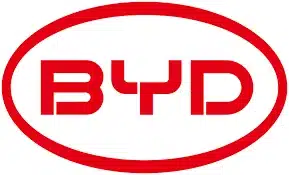
BYD is a leading lithium-ion battery manufacturer in China, and has become one of the world’s largest electric vehicle battery manufacturers with its technological innovations in electric vehicles and energy storage. With years of technological research and industrial layout, BYD has occupied an important position in the global lithium battery market.
Core products
- Lithium Iron Phosphate Battery (LiFePO4)
BYD’s lithium iron phosphate batteries are known for their high energy density, long lifespan, and superior high-temperature performance. Lithium iron phosphate batteries also demonstrate outstanding safety and environmental friendliness, making them an ideal choice for new energy vehicles and energy storage systems. - Blade Battery
In 2020, BYD launched its first blade battery with an elongated cell design, which improved the energy density and volume utilization of the battery. This battery has significant advantages in safety and can effectively reduce the risk of thermal runaway of the battery. The first model to be equipped with blade batteries was the BYD Han, which received a very positive market response and demonstrated the efficient performance of blade batteries. - Energy Storage Solutions
BYD offers a variety of energy storage solutions covering residential, commercial, and utility applications.
Main applicates
BYD batteries perform well in electric vehicles, energy storage systems, power tools, and other areas. BYD has established multiple lithium battery production bases in both domestic and international markets, with an annual production capacity of tens of GWh. It has also opened production facilities in overseas markets such as Hungary and India, further enhancing its global market share.
BYD is one of industrial leader of lithium battery manufacturers in China。 BYD’s electric vehicles are equipped with self-developed lithium batteries, which have high safety, excellent range, and fast charging capabilities, meeting the market’s demand for high-performance electric vehicles.
Technology development path
- Lithium iron phosphate battery
By applying this technology to electric vehicles, BYD has significantly improved the range and overall performance of electric vehicles. - Blade battery
BYD’s blade battery is an innovative design, with its unique elongated cell structure improving safety and production efficiency, and effectively reducing production costs. It is widely used in new car models such as U8 and U9. - 46-series cylindrical battery
BYD is developing the 46 series large cylindrical battery with lithium iron phosphate chemical system, which is planned to be mainly applied in the energy storage field and may become a battery for BYD’s high-end electric vehicle models. The development of this series of batteries marks BYD’s further layout in the large cylindrical battery market.
Samsung SDI

Samsung SDI is a battery manufacturing company under the Samsung Group, founded in 1970 and headquartered in Seoul, South Korea. It focuses on developing and producing power batteries, lithium batteries, and fuel cells, and occupies an important position in the global battery industry.
Core products
- Power Battery
Samsung SDI’s power batteries are mainly square shaped, with advanced ternary materials (NCM) used for the positive electrode, providing high energy density and excellent safety. The battery capacity is 37Ah, 60Ah, and 94Ah, widely used in electric vehicles (EVs) and plug-in hybrid electric vehicles (PHEVs) to ensure high efficiency and long-lasting endurance. - Energy Storage System (ESS) Batteries
Samsung SDI’s Energy Storage System (ESS) batteries support the collection and storage of renewable energy sources such as solar and wind, and are widely used in home and industrial energy storage solutions to improve energy efficiency and reduce costs. - Small Lithium-ion Batteries
In addition to power and energy storage batteries, Samsung SDI also produces small lithium-ion batteries, mainly used in consumer electronics products such as smartphones, laptops, etc., which are widely popular in the market due to their high performance and reliability.
Main Applicates
Electric Vehicles (EV) and Plug-in Hybrid Electric Vehicles (PHEV)
Samsung SDI is a major supplier of power batteries for electric vehicles, offering batteries of different specifications that are compatible with various types of electric vehicles, including:
- BEV (pure electric vehicle): 60Ah and 94Ah batteries.
- PHEV (Plug-in Hybrid Electric Vehicle): 26Ah and 37Ah batteries.
- HEV (Hybrid Electric Vehicle): 5.2Ah and 5.9Ah batteries.
Energy Storage Systems (ESS)
Samsung SDI’s energy storage batteries are widely used in household and commercial energy storage fields, especially renewable energy sources such as solar and wind power.
Consumer Electronics
Samsung SDI also provides high-quality small batteries for consumer electronics devices. These batteries occupy a large market share in the market due to their stability and long cycle life.
Technology development path
- All-solid-state battery (ASB)
Samsung SDI is committed to developing all solid state batteries and plans to achieve mass production by 2027. Replacing traditional liquid electrolytes, it is expected to increase energy density to 900Wh/L and have longer cycle life and safety, suitable for high-end electric vehicles with a range of over 600 miles. - Ultra-fast charging technology
Samsung SDI is developing ultra fast charging technology and plans to enter mass production in 2026. This technology enables the battery to charge to 80% in 9 minutes, improving charging efficiency and user experience. - Battery Materials and Durability
Samsung SDI will continue to optimize battery materials and strive to develop more durable batteries, with the goal of launching batteries that can last for more than 20 years by 2029.
Tesla Energy
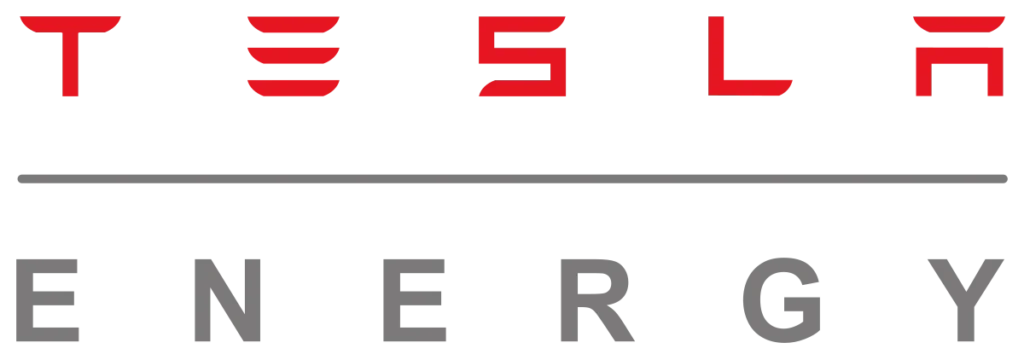
Tesla is a globally leading company focused on electric vehicles and energy products, leading the industry in lithium battery technology innovation and production models.
Core products
- Power Battery Systems
Tesla mainly uses cylindrical batteries: 18650 and 21700, which are manufactured by Panasonic and have high energy density and consistency. The energy density of the 21700 battery can reach 300Wh/kg, significantly better than its competitors, ensuring the long range capability of electric vehicles. - Battery Management System (BMS)
Tesla’s independently developed Battery Management System (BMS) can accurately and efficiently manage the charging and discharging of batteries, prevent overcharging and overdischarging, extend battery life, and enhance endurance. BMS technology is one of the key competitive advantages for Tesla’s electric vehicle performance and safety. - New Battery Technology Development
Tesla is exploring new battery technologies to reduce the use of cobalt and promote cobalt free batteries. In addition, Tesla has acquired Maxwell Technologies with the aim of integrating supercapacitor and dry electrode technology to further enhance the performance and cost advantages of its own batteries.
Main Applicates
Electric Vehicles (EVs)
Tesla’s battery technology is widely used in its entire range of electric vehicles, such as Model S, Model 3, Model X, and Model Y. The 18650 and 21700 batteries have given Tesla a leading position in the electric vehicle market.
Energy Storage System
Tesla’s Powerwall and Powerpack are important products in its energy storage system. Powerwall is designed specifically for households to store solar energy and provide backup power, especially during power outages. Powerpack is widely used in commercial and industrial fields to provide stable power supply for enterprises.
Commercial and Industrial Energy Storage
Tesla’s Megapack is its energy storage product designed for large-scale facilities. These systems help businesses manage energy demand, reduce costs, and improve the efficiency of renewable energy utilization.
Technology development path
- 4680 Battery
Tesla is developing a new 4680 battery, which is a higher capacity cylindrical battery using dry electrode manufacturing technology, aimed at reducing production costs, improving efficiency, and increasing energy density. The 4680 battery is expected to be used for new models such as the upcoming Cybertruck. - Gigafactory Construction
In order to meet the growing demand for electric vehicles, Tesla has built a Gigafactory in Nevada, which focuses on large-scale production of batteries. Since 2017, Gigafactory has been producing 21700 batteries with an energy density of 340Wh/kg and a competitive price.
SK Innovation
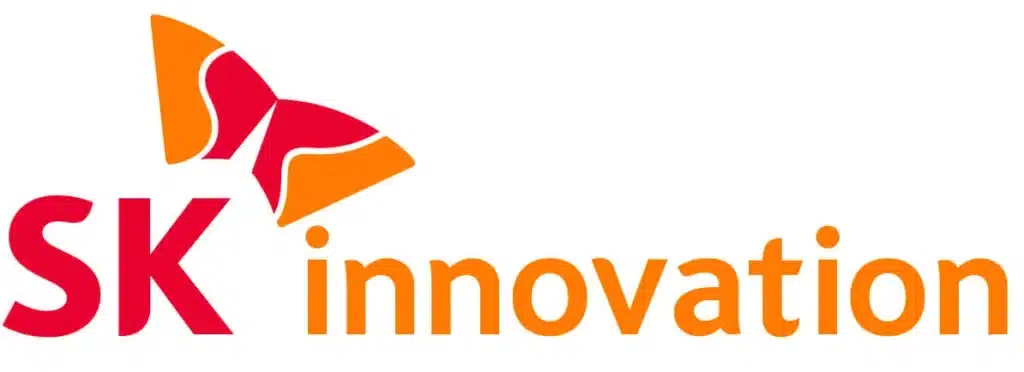
SK Innovation is a leading energy and chemical company in South Korea that has been involved in the battery industry since 1962. The company focuses on innovative technology, environmental protection, and sustainable development, becoming an important participant in the battery industry.
Core products
- Power Batteries
SK Innovation produces lithium-ion batteries with high energy density and long lifespan, which are widely used in electric vehicles (EVs). In addition, SK also provides battery module and battery pack solutions for vehicle manufacturers. - Battery Materials
High energy density electrode: improves performance and output energy.
Diaphragm: It can improve the safety and efficiency of batteries.
Main Applications
Electric Vehicles (EV)
SK Innovation provides batteries to multiple global car manufacturers (Hyundai, Kia, Volkswagen, etc.). They adopt a soft pack design with high energy density and excellent safety. SK Innovation plans to further improve energy density and endurance by increasing the nickel content in the battery.
Energy Storage Systems (ESS)
SK Innovation also has an active layout in the energy storage system market (household energy storage and commercial energy storage), which can store renewable energy such as solar and wind energy, and provide stable power supply to help users optimize energy management.
Technology development path
- Soft pack battery technology
Since 2018, SK Innovation has started mass producing 64Ah specification soft pack batteries with an energy density of 260Wh/kg, gradually increasing to 294Wh/kg and 314Wh/kg. - Solid-state battery research and development
SK Innovation is actively developing solid-state battery technology and is expected to launch polymer and sulfide based all solid state batteries in 2025 and 2026, respectively, and achieve commercialization in 2028 and 2029, which is a key development direction for future battery technology.
Envision AESC
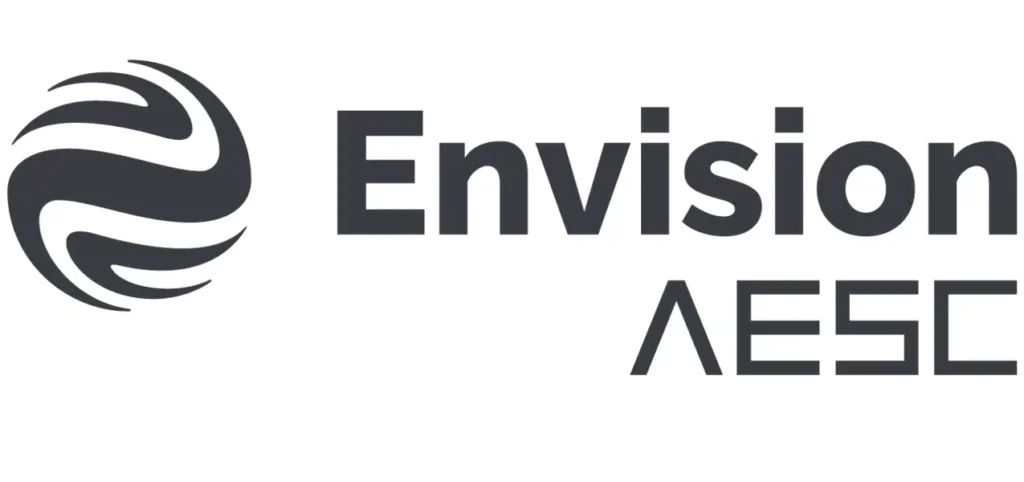
Yuanjing AESC is a globally leading intelligent battery technology company, covering all aspects of the battery industry chain, with outstanding electrode and cell research and manufacturing technology, module design, quality management, and intelligent BMS technology.
Core products
- Gen5-811 High Nickel Battery
The Gen5-811 high nickel battery from Farview AESC is one of its core products, with the following significant features:
High energy density: 300Wh/kg, meeting the needs of long-range electric vehicles.
Safety: Ensure the safety of the battery under extreme conditions through rigorous needle puncture testing, overcharge testing, and hot box testing.
Reliability: Able to maintain high-performance output in various application scenarios for a long time. - Energy Storage System (ESS)
Far sighted AESC has also developed energy storage systems for the renewable energy sector, which can store clean energy such as solar and wind energy and improve energy utilization efficiency.
Main Application
Electric Vehicle (EV)
Far sighted AESC’s power batteries are widely used in the electric vehicle industry, providing battery solutions with high energy density, high safety, and durability. Its Gen5-811 high nickel battery has been adopted by car brands such as Nissan, Mercedes Benz, BMW, etc., meeting the high requirements of modern electric vehicles for range and performance.
Energy Storage Systems (ESS)
Far sighted AESC batteries are also widely used in household and industrial energy storage systems, providing stable power supply when needed and improving energy efficiency.
Technology development path
- New Generation Power Battery Technology
In 2019, Farview AESC launched the Gen5-811 AIoT power battery, which has an energy density of 300Wh/kg, breaking through the limitations of existing batteries in terms of safety, performance, cost, and lifespan. - Total Battery Life Cycle Management
Far sighted AESC is committed to optimizing the lifecycle management of batteries, from research and development, production, installation, recycling to secondary utilization, through its intelligent operating system EnOS ™ Real time monitoring of battery status, providing fault warnings, and extending battery life.
Gotion High-Tech
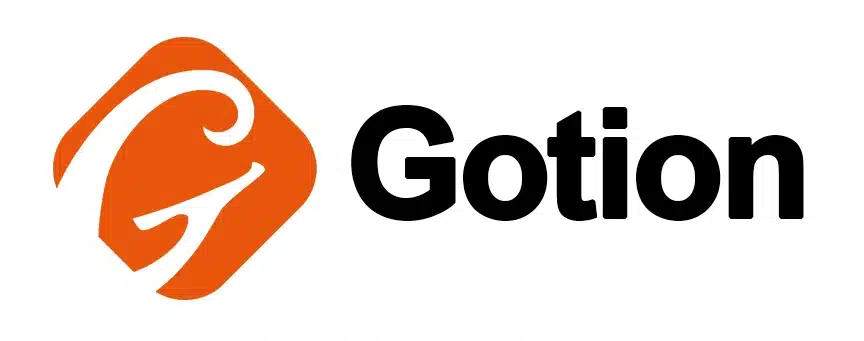
Since its establishment in 2006, Guoxuan High Tech has become one of the leading lithium battery manufacturers in China, focusing on the research and development, production, and sales of new energy vehicles and energy storage systems. With nearly 20 years of industry experience, Guoxuan High Tech has been deeply involved in the field of lithium batteries and has gained a first mover advantage in the domestic market.
Core products
- Power Batteries
Gotion High Tech focuses on high-performance power batteries, primarily used in electric vehicles (EVs) and plug-in hybrid electric vehicles (PHEVs). Its battery products include:
Ternary lithium battery: Nickel cobalt manganese (NCM) battery, which balances the advantages of energy density and safety, is widely used in various electric vehicles.
Lithium iron phosphate battery (LFP): Known for its excellent safety and long lifespan, it is suitable for cost sensitive products. - Energy Storage Systems
Gotion High Tech also has a significant presence in the energy storage field, with its energy storage products including:
Home energy storage system: supports efficient utilization of green energy such as solar energy.
Commercial and industrial energy storage systems: provide energy management solutions for large enterprises and industrial users to improve energy utilization efficiency.
Main Applicates
Electric Vehicles (EV)
Gotion High Tech’s power batteries are widely used in electric vehicles, including:
Pure electric vehicles (BEVs): use ternary lithium batteries and lithium iron phosphate batteries to meet the range and performance requirements of different vehicle models.
Plug in hybrid electric vehicle (PHEV): provides power support for hybrid models, combining internal combustion engine and electric drive system.
Energy Storage Systems (ESS)
Gotion High Tech also has a significant presence in the energy storage market, with its energy storage products mainly including:
Home energy storage system: helps households convert solar energy into green energy such as electricity.
Commercial and industrial energy storage systems: provide energy management solutions for enterprises, optimize energy management, and improve operational efficiency.
Technology Development Route
- Power Battery Technology
Gotion High Tech has two technological routes for power batteries: lithium iron phosphate (LFP) and ternary lithium batteries (NCM).
Lithium iron phosphate battery: By applying silicon-based negative electrode and pre lithiation technology, the energy density of LFP batteries is gradually improved, with the goal of reaching 210Wh/kg or above.
Ternary lithium battery: We are advancing the research and development of high nickel ternary batteries with the goal of achieving an energy density of 302Wh/kg, and plan to launch a semi-solid battery with a capacity of 360Wh/kg. - Energy Storage Systems
Gotion High Tech has also made significant progress in the field of energy storage systems, particularly in household and commercial energy storage. Optimizing renewable energy storage technology, the company is committed to improving energy utilization efficiency.
Home energy storage system: helps household users store green energy such as solar energy to ensure stable power supply.
Commercial and industrial energy storage systems: help businesses achieve energy balance, optimize usage efficiency, and reduce operating costs.
Shenzhen Hongyitai

Core products: 3.7V lithium ion battery, lithium battery pack, polymer battery, etc.
Performance: High energy density, fast charging, long cycle life (more than 5000 cycles).
Quality control: All batteries pass strict performance and safety tests to ensure reliability and stability.
Technical Advantage: Adopting the latest Battery Management System (BMS) to enhance safety and extend battery life.
Test Reports and Certifications
All Hongyitai’s batteries can be provided with corresponding certificates, such as UL1642, IEC62133 report, UN38.3, CE and MSDS. all batteries can be provided with corresponding charging/discharging curves, cycle life and other parameters.
Technology development path
Custom lithium battery: whether it is 18650 battery pack or lithium iron phosphate battery pack, they can customize high quality battery modules to meet customers’ needs.
Home energy storage: Especially for home wall mounted energy storage, there are 3 kinds of products: 5Kwh, 7.5Kwh and 10Kwh, supporting multiple strings and multiple parallels to increase the power.
Lithium batteries to replace lead-acid batteries: 12V, 24V and 48V battery packs to replace the original lead-acid battery program.
Emerging Trends in Lithium Battery Manufacturing
Lithium battery manufacturing is in a stage of rapid development, but it is also further improving energy density, developing fast charging technology, researching and developing new materials, optimizing production processes and intelligent management, as well as environmental protection and sustainable development. These trends are driving the development of lithium batteries towards higher efficiency, safety, and environmental friendliness.
Solid state battery
Solid state battery technology is one of the important innovations in the current field of lithium battery manufacturing. Compared with traditional liquid batteries, solid-state batteries have higher energy density, higher safety, and longer service life. With the advancement of technology and the reduction of production costs, solid-state batteries are expected to achieve commercialization in the coming years and become a milestone in sustainable energy solutions.
Recycling and sustainable development
With the increasing use of lithium batteries, recycling technology has become an important process in the industry. The combination of hydrometallurgy and pyrometallurgy has become one of the main forms of recycling nowadays. At the same time, direct recycling technology is developing, which can restore the functionality of battery materials at lower energy consumption, thereby further improving resource utilization.
Battery Innovation
In the future, lithium-ion battery recycling technology may focus on the following aspects:
- Automated disassembly: Developing robotic disassembly technology to improve disassembly efficiency and reduce labor costs.
- Ultrasonic recycling: Utilizing ultrasonic technology to achieve direct recycling of materials at the anode and cathode ends, maintaining material integrity.
- Biodegradable Batteries: Research into new biodegradable batteries to simplify the recycling process and reduce environmental impact.
How to choose the right manufacturer for your needs
When choosing a suitable lithium battery manufacturer, procurement managers and engineers typically need to consider multiple factors. Price is key, but more importantly, product quality and technical support. Here are a few key aspects to pay attention to when choosing a supplier:
- Price: Purchasing managers usually need to control costs while ensuring product quality. By comparing quotes from multiple suppliers, select a supplier with reasonable and competitive prices.
- Quality control and certification: Whether the supplier’s quality management system is sound, and whether necessary test reports and certifications (such as CE, UL certification, etc.) are provided, are the key concerns of engineers. Our Hongyitai batteries are fully compliant with ISO 9001 and UL 2054 standards, ensuring top-tier quality and safety.
- Delivery Time and Flexibility: Ensure that suppliers can deliver on time, Hongyitai supports customized battery packs and small batch production with low MOQ and flexible order management.
- After-sales service: A good after-sales support system can provide you with troubleshooting, technical consultation and other services to ensure a long-term and stable cooperative relationship.
Battery Type
Our 3.7V lithium polymer batteries are widely used in consumer electronics, such as bike mounted device. It can meet your specific battery compartment space and long-term battery life requirements.
Hongyitai Lifepo4 battery replace lead acid for RV and marine. The voltage range includes 12V, 24V, 48V, and the battery capacity ranges from 10Ah to 400Ah.
Technical support and after-sales service
At Hongyitai, we provide comprehensive technical support to our customers, helping you smoothly complete every step from battery selection, installation to post maintenance. Whether engineers need battery integration or procurement requires timely delivery of battery orders, our experienced after-sales team can provide comprehensive support.
Summary
Choosing the best lithium battery supplier is key to ensuring battery performance and long-term reliability. By comprehensively considering factors such as price, quality, delivery time, and after-sales service, procurement managers and engineers can make more accurate supplier selection decisions to ensure the smooth progress of your project.
